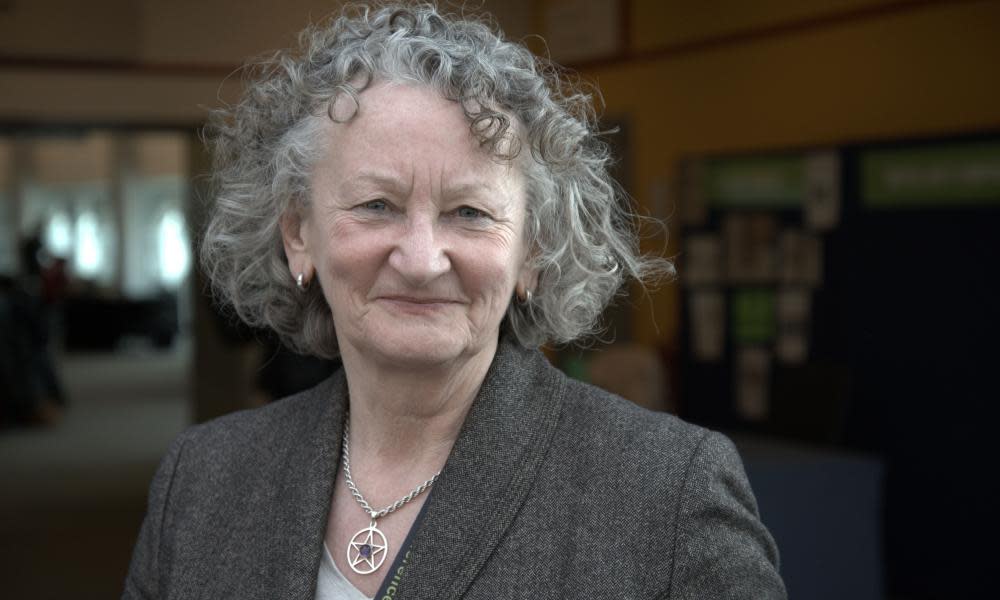Female peers condemn 'misogynistic' attitudes in Lord Lester debate

Two female peers have condemned fellow Lords members for “misogynistic, victim-blaming” attitudes after they cast doubt on the claims of a woman found to have been sexually harassed by a Lib Dem peer, because she was friendly to him on later occasions.
Jenny Jones, of the Greens, said she was so shocked at the attitudes in Thursday’s debate that she walked out of the chamber. At the end, the Lords voted to block the punishment imposed on Anthony Lester following a year-long series of inquiries.

Meral Hussein-Ece, a Lib Dem peer, said she became “more and more incredulous and angry” as she listened to the debate, which she said appeared to be a concerted effort by Lester’s friends in the Lords to stop a suspension imposed by the privileges and conduct committee.
The three inquiries concluded that Lester, an eminent QC, had sexually harassed Jasvinder Sanghera and made “corrupt inducements” by promising her a peerage if she slept with him. He was initially suspended until June 2022.
This had to be approved by peers, which usually happens without a vote. But Lester’s friend and fellow lawyer, Lord David Pannick, forced a vote on an amendment, sending the case back to the committee.
This was carried by 101 votes to 78, prompting Sanghera to say she felt “victimised all over again”, and would not recommend that other women make complaints against peers, as she had no faith in the process.
Jones said she was dismayed by a debate in which a series of peers said they were long-time friends of Lester and cast doubt on the veracity of Sanghera’s claims, which were supported by testimony from six people.
“I actually walked out the debate at one point because I was so horrified at the things that were being said – so misogynistic [and] victim-blaming,” she said. “I couldn’t believe that this was happening in 2018. It was so archaic and, honestly, cruel.”
Hussein-Ece said the debate seemed an attempt by Lester’s friends to force a vote on a Thursday afternoon, when many peers had left London.
“It was pretty awful. I just couldn’t believe how it was unfolding,” she said. “The debate was all about how unfair it was to Lord Lester, and how he was a great friend of all of them. It was the establishment, the old boys’ network, coming together to look after their own.”
Pannick told the Lords that there were inconsistencies between Sanghera’s “allegations and her own conduct”, saying that a week after the harassment, she had written to Lester “in affectionate terms” in a book she gave him.
Other peers spoke to say they had known Lester, 82, for many years and could not believe he would act in such a way. The average age of speakers in the debate was 75.
A Lib Dem peer, Tom McNally, also noted the warm comments Sanghera had written in the book, saying: “It seems strange, but never mind.” He also expressed doubt over whether a “confident and determined campaigner” like her would be intimidated by a peer.
Another Lib Dem, Dick Taverne, said Sanghera’s behaviour was such that if her evidence to the inquiry had been cross-examined – the key demand of Lester and Pannick – then it was likely “sufficient doubts would have been raised for the charge to be dismissed”.
This prompted shouts of, “Shame on you!” from Jones and Hussein-Ece.
Jones said it the Lords seemed “totally out of touch with the feeling of the #MeToo movement, and the general feeling of the country”.
She added: “I walked out in fury at some of the things that were being said by eminent people that I’d always had a high regard for. Pannick has always been a hero of mine. He could not be more diminished in my eyes for taking up this cause.”
Pannick has argued that Lester’s inability under the Lords disciplinary rules to cross-examine Sanghera meant her evidence could not be fully tested. Other peers argued that Lester had approved the rules and only objected to them when the inquiry found against him.
The investigation upheld Sanghera’s allegations that Lester had harassed her at his house about 11 years ago, later telling her, “If you sleep with me, I will make you a baroness within a year,” and threatening repercussions if she did not.
The matter returns to the privileges and conduct committee on Tuesday, which is expected to push again for the punishment.

 Yahoo News
Yahoo News 
